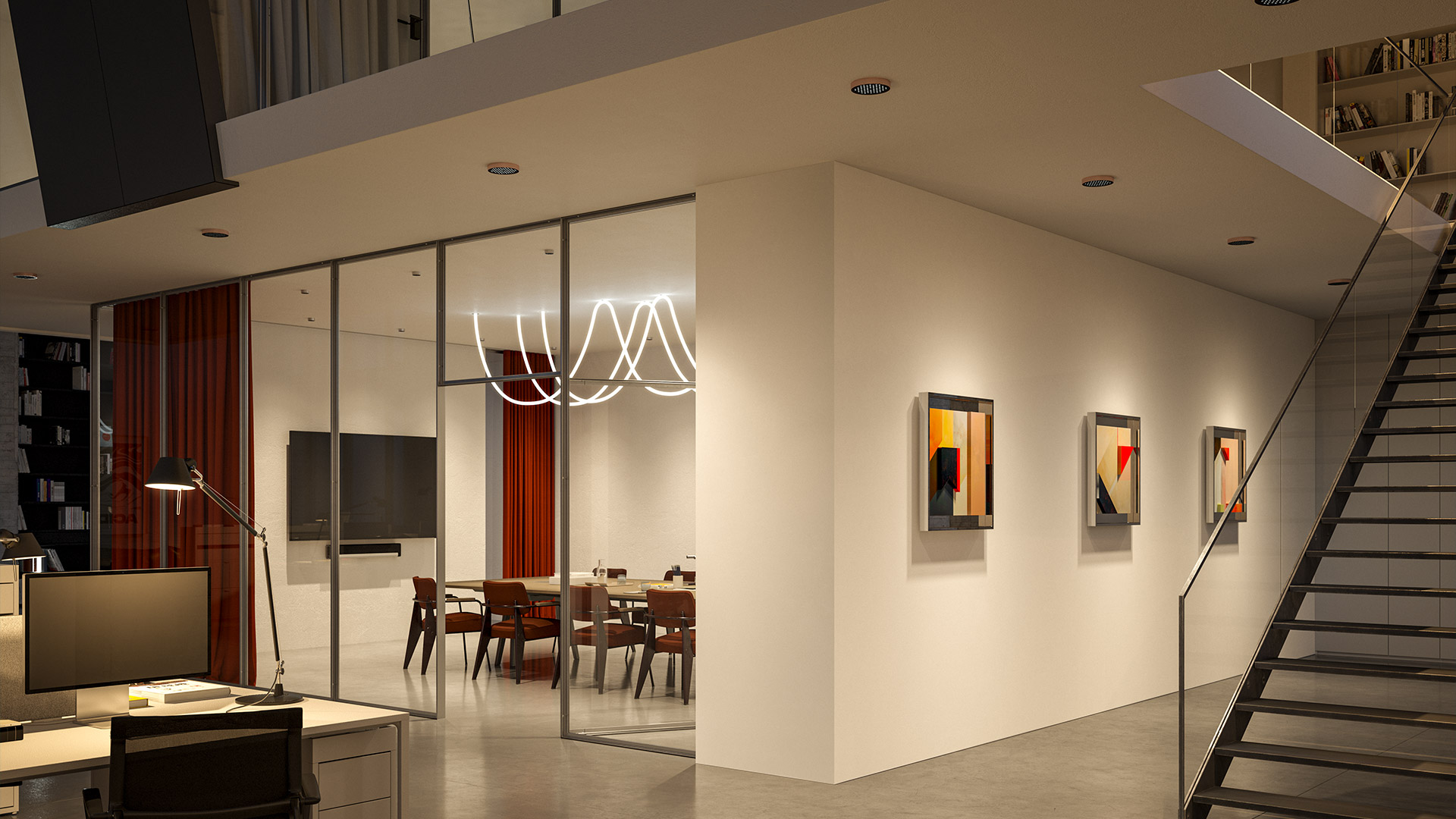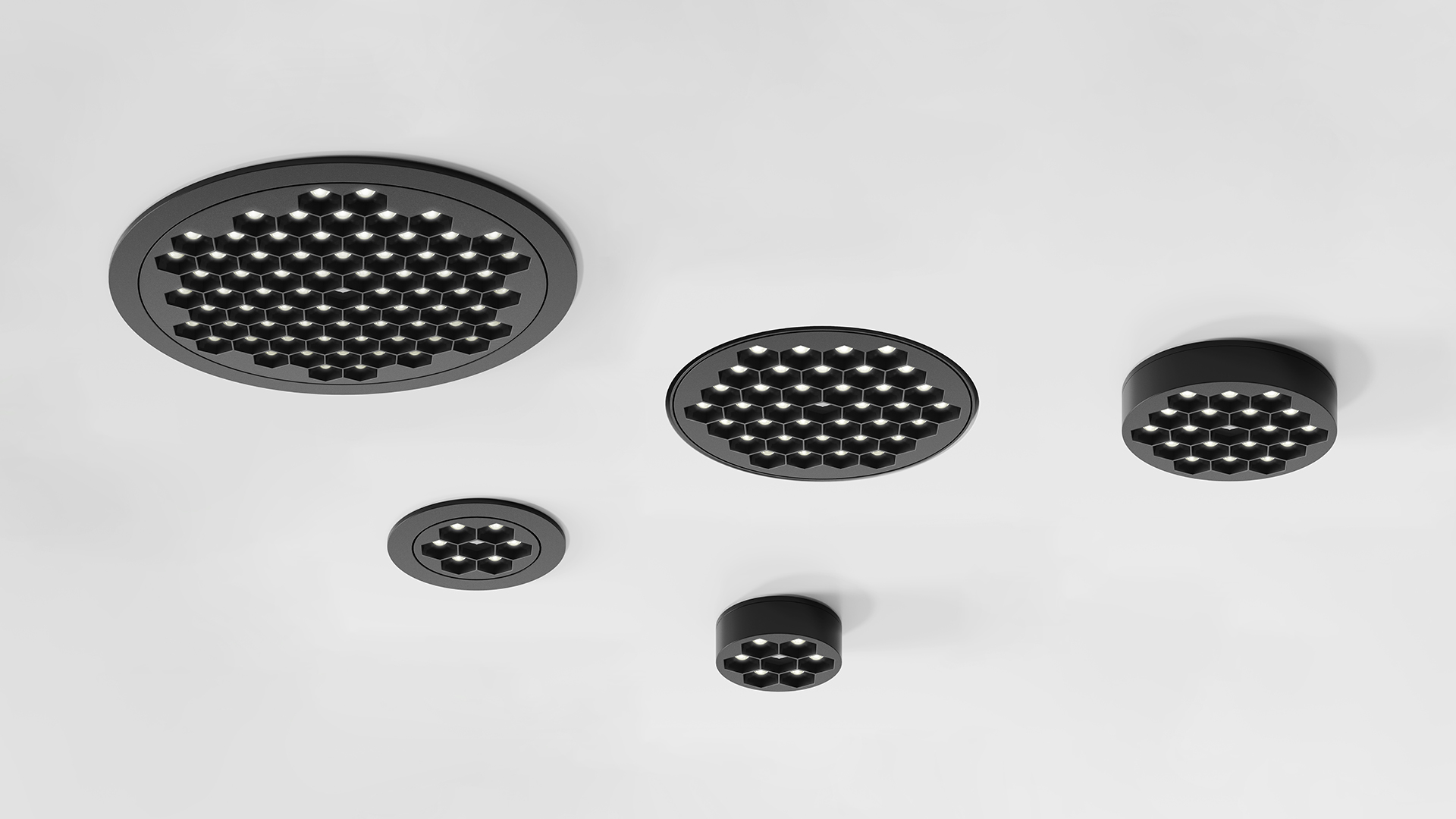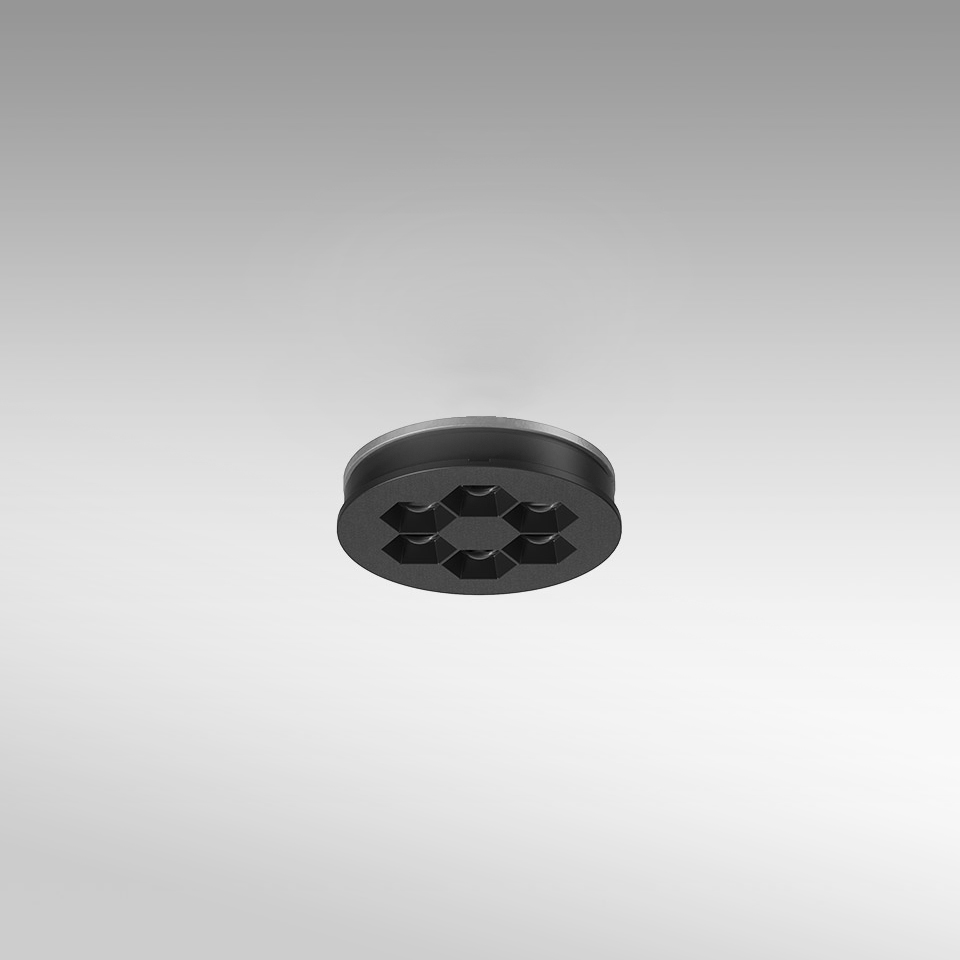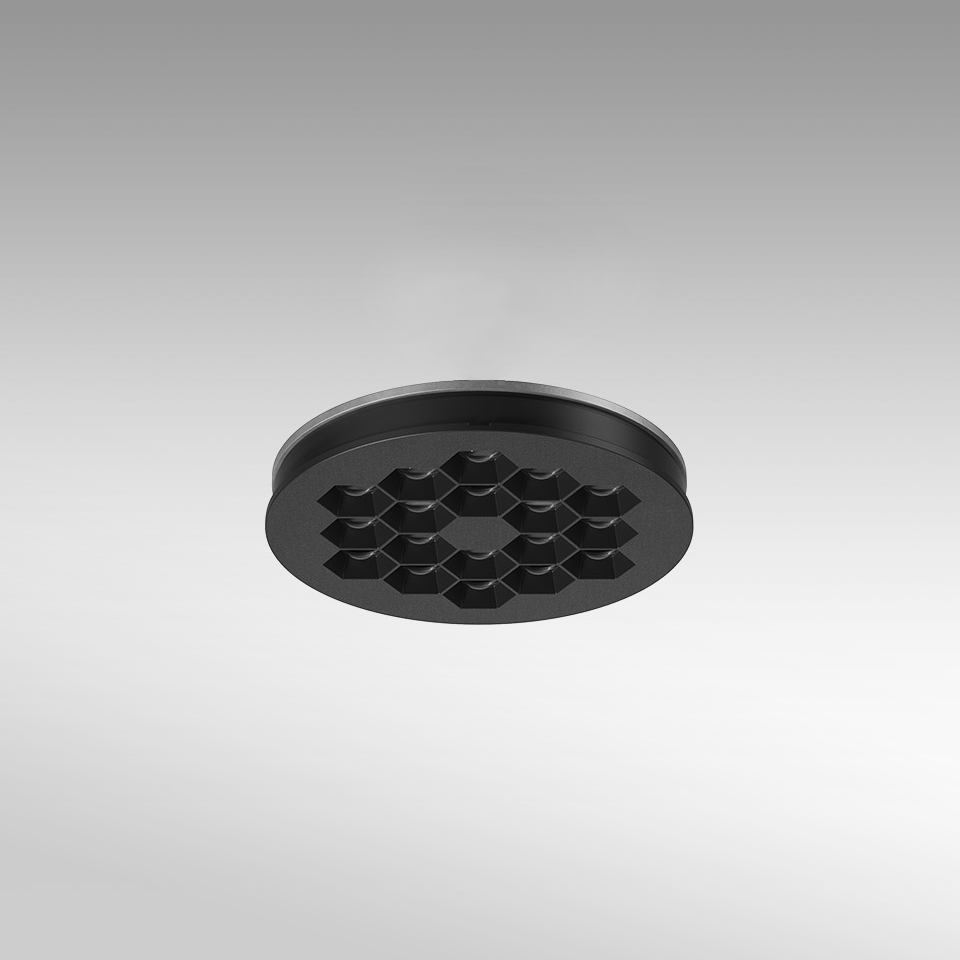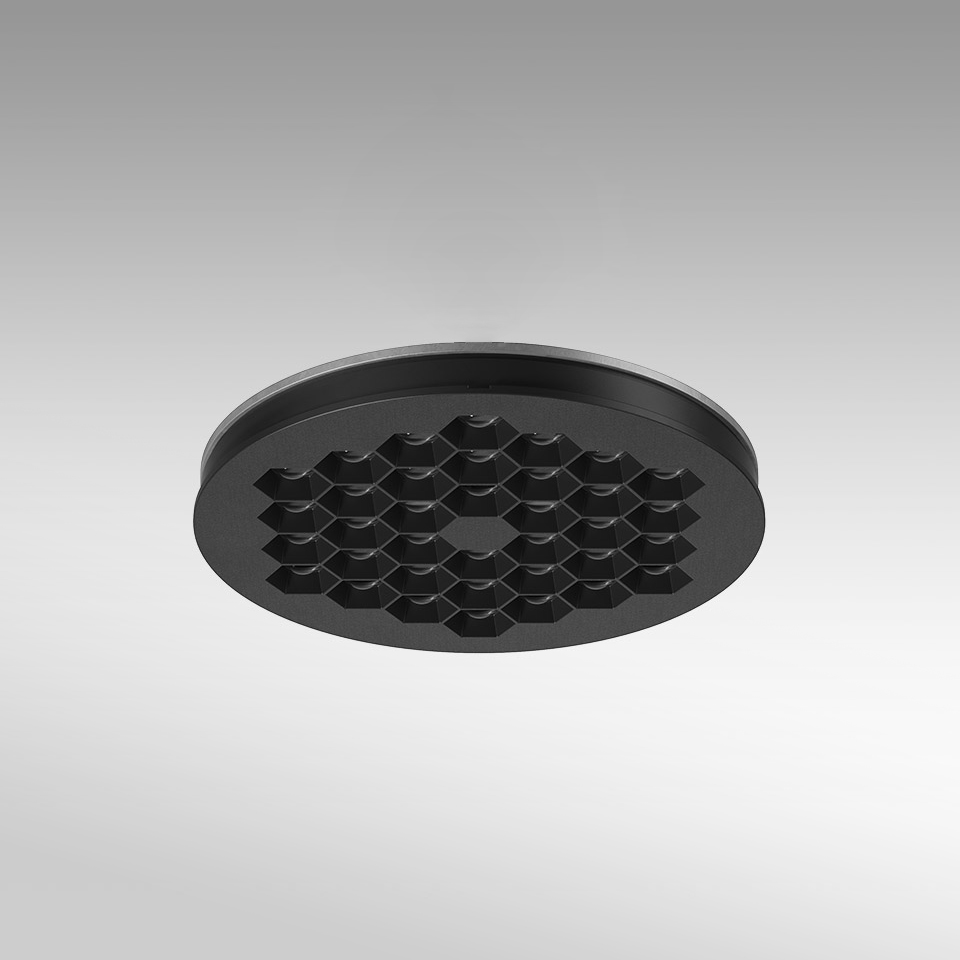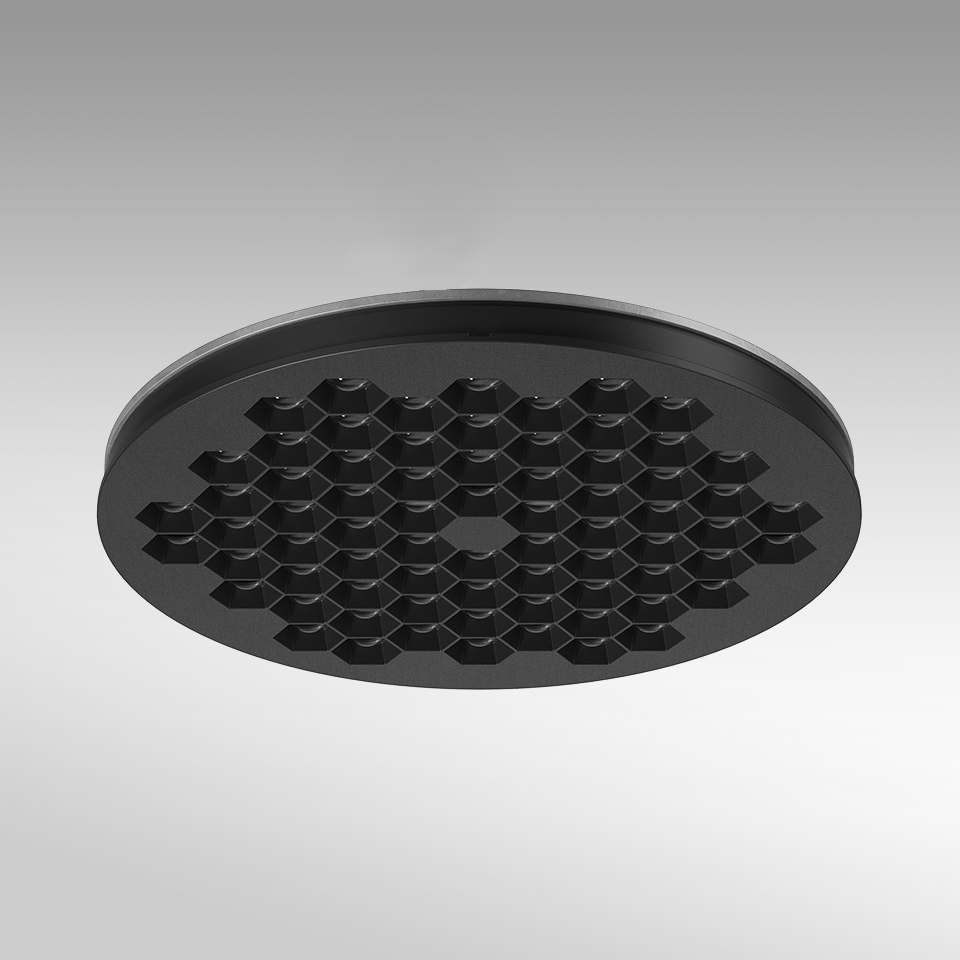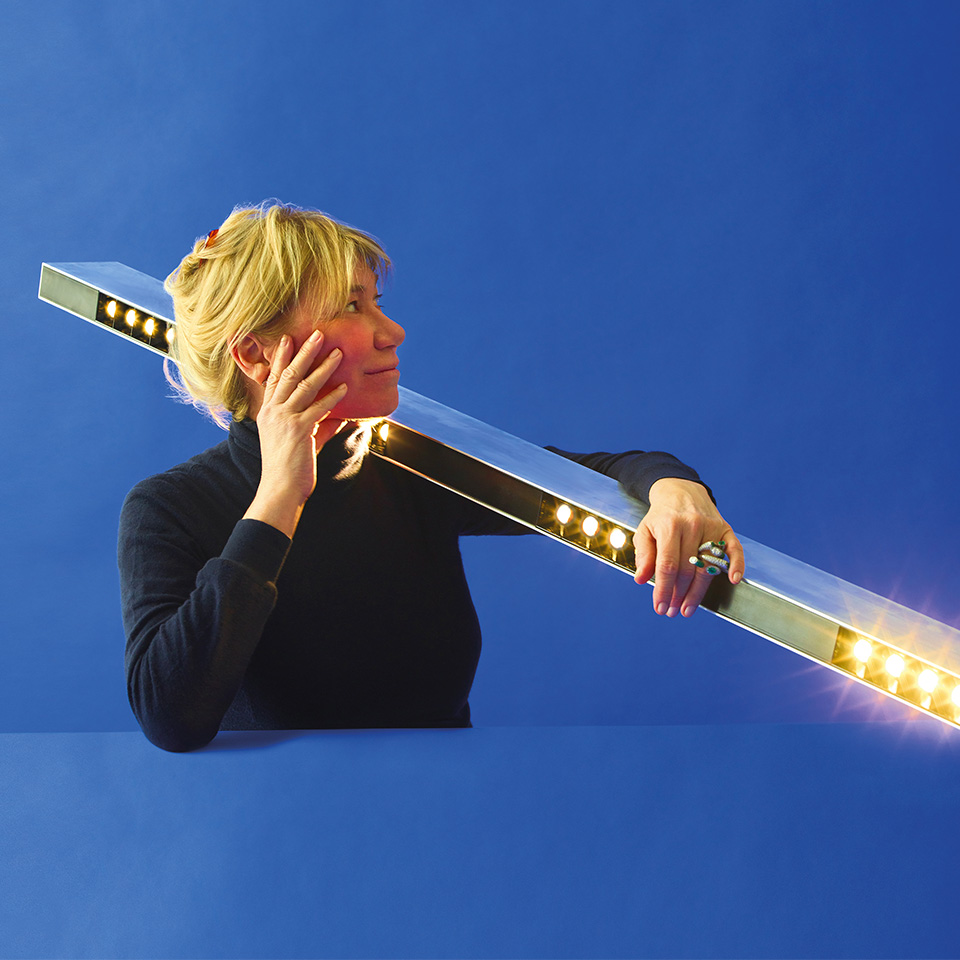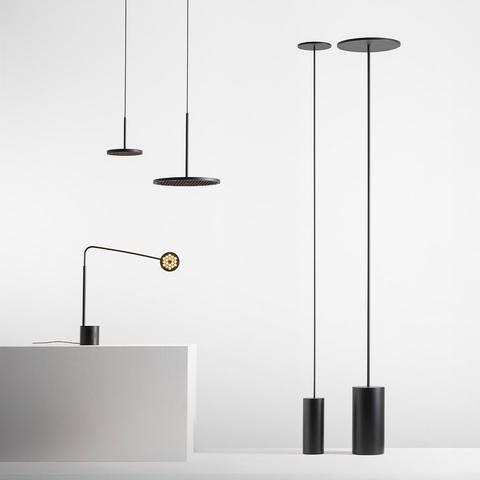Helgoland è un principio di luce innovativo, compatto ed efficiente. La sua tecnologia brevettata sfrutta una maglia esagonale che massimizza il flusso luminoso e consente un’illuminazione uniforme, eliminando l’effetto delle ombre multiple.
Il motore ottico ultra-sottile (12,5 mm) integra una lente circolare che cattura e controlla il 100% della luce emessa, garantendo massimo comfort visivo. La geometria ispirata alla natura permette configurazioni modulari, lineari o radiali.
Disponibile in diverse versioni per installazione a soffitto, a incasso o con braccio orientabile, si adatta a molteplici contesti architettonici e dialoga con altri sistemi della collezione, come Sylt.
Helgoland è sinonimo di sostenibilità: riduce materiali, peso e ingombri, ottimizza i componenti e garantisce un uso efficiente dell’energia con un’efficacia fino a 150 lm/W.
